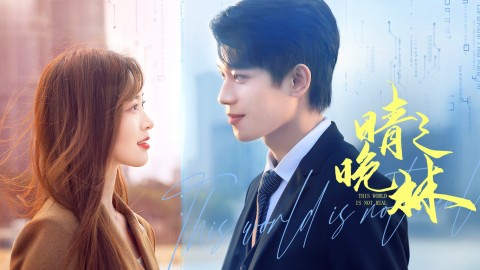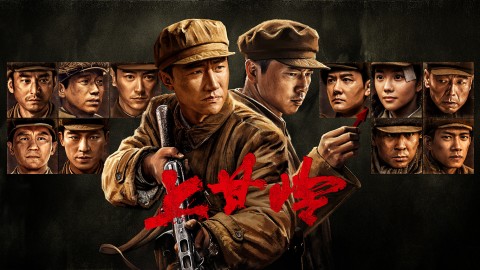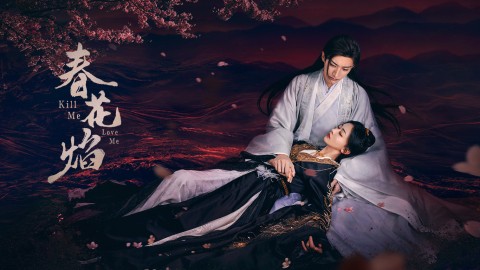Lightseeker: The Story of the Young Mao Zedong - A Riveting Revolution-themed Masterpiece
Recently, the highly acclaimed television drama "Lightseeker: The Story of the Young Mao Zedong," which is a key supported project by the National Radio and Television Administration and the Beijing Municipal Radio and Television Bureau, as well as a key artistic project of "Beijing Dashi Ting," is currently airing on Beijing TV, Zhejiang TV, Guangdong TV, and popular online platforms such as iQiyi, Youku, and Tencent Video. This series focuses on the experiences of Mao Zedong during his youth from 1918 to 1921, portraying his tumultuous journey with exquisite artistic expression, captivating the audience.
With over half of the series already aired, the plot becomes increasingly thrilling and captivating. Many viewers have expressed that the storyline seamlessly connects with "Youth," making it highly enjoyable and undoubtedly a remarkable revolutionary-themed masterpiece with both entertainment and artistic value. The plot is well-developed, with suspenseful twists and turns. It is widely known that historical television dramas with revolutionary themes face the challenge of storytelling. However, "Lightseeker: The Story of the Young Mao Zedong" successfully overcomes this hurdle. Following the principle of being faithful to historical events while allowing artistic imagination, the series meticulously designs suspense and conflicts in the plot, resulting in a highly engaging revolutionary-themed drama that viewers describe as "compelling."
One standout scene in Episode 22 portrays Mao Zedong leading his fellow students in a clever scheme involving the confiscation of opium from Zhang Jingyao. Zhang Jingyao, the governor of Hunan, had seized a batch of opium at the station and concealed it in a warehouse under the pretense of storing soybeans. Mao Zedong and his comrades discovered the stash, and using a "bait and switch" tactic, they replaced all the opium with soybeans, quietly removing and destroying the opium. This turn of events showcases Mao Zedong's courage and intelligence while exposing Zhang Jingyao's greed and corruption. The portrayal of Mao Zedong and his patriotic comrades in "Lightseeker: The Story of the Young Mao Zedong" is remarkably vivid, with distinct personalities that exude the power of youth and intellectual fervor.
Another unforgettable moment occurs when Mao Zedong, then a librarian assistant at Peking University, engages in a captivating intellectual duel with Zhu Qianzhi. Zhu Qianzhi's entrance is impressive, with several classmates surrounding him, challenging him with questions. Regardless of whether it is a classic Chinese literary work like "Discourses on Salt and Iron" or Western works by Schopenhauer and Goethe, Zhu Qianzhi effortlessly recites the original texts.
Upon encountering Mao Zedong, his simple remark that "the origins of anarchism can actually be found in ancient Chinese texts" immediately earns Zhu Qianzhi's admiration. Similarly, the debate between Zhang Guotao and Fu Siniang on whether to study Russia or the United States is a riveting scene that stirs the audience's passion and showcases the knowledge and ideals of these patriotic youth.
The debates among these students on the campus of Peking University have an exhilarating "clash of the titans" feel. They eloquently recite passages from famous literary works, providing a truly satisfying experience for viewers. The cheerful and talkative "Three Friends of Xiangjiang," the intelligent and gracious Yang Kaihui, and the talented and somewhat eccentric Huang Kan—all these characters are vividly portrayed, leaving a lasting impression.
Even the character of Zhang Jingyao, who conceals his sinister nature behind a smiling facade, is brought to life by the seasoned actor Dong Yong. "Lightseeker: The Story of the Young Mao Zedong" not only tells the story of the country and the nation during those three years but also narrates the personal stories of Mao Zedong and other passionate young individuals. Their personal futures and destinies, much like the state of the country at that time, are uncertain and filled with twists and turns. It is a tale that blends grandeur and simplicity, showcasing the profoundness of love and the greatness found within ordinary lives.
The remarkable aspect of this drama is that it not only vividly portrays historical events but also delves into the rich humanistic content hidden within the characters' emotions and spiritual experiences, revealing their ordinary sides, such as their emotional exchanges with loved ones, family, and friends, thus deeply resonating with the audience.
In simple terms, it can be described as "emotionally moving." Thirdly, the friendship is heartwarming. "Lightseeker: The Story of the Young Mao Zedong" revolves around the story of the "Three Friends of Xiangjiang" - Mao Zedong, Cai Hesen, and Xiao Zisheng.
From the drama, we can see that these three individuals all love China and have a strong sense of social responsibility. They not only inspire each other academically but also make efforts to improve Chinese society through practical actions. I believe their friendship will resonate with many young people today. Although they later went their separate ways due to ideological differences, they all made unremitting efforts for the future of China and the revolutionary cause, becoming a unique page in the history of the Chinese revolution.
"Lightseeker: The Story of the Young Mao Zedong" has aired more than twenty episodes so far, and the plot becomes increasingly passionate and captivating. In fact, as long as creators of major revolutionary themes can authentically convey the ardent ideals of young people from a hundred years ago and their determined pursuit to the audience, young viewers will definitely embrace it.
Because every young person today has their own patriotism deep within them, it is easily ignited. "Lightseeker: The Story of the Young Mao Zedong" has accomplished a nationwide spiritual baptism and cultivation in a vivid and empathetic manner, allowing contemporary young people to have a deeper and more comprehensive understanding of the youth history and revolutionary trajectory of great figures. It sparks their desire for knowledge and ideals, which is precisely where the precious and innovative value of "Lightseeker: The Story of the Young Mao Zedong" lies.


